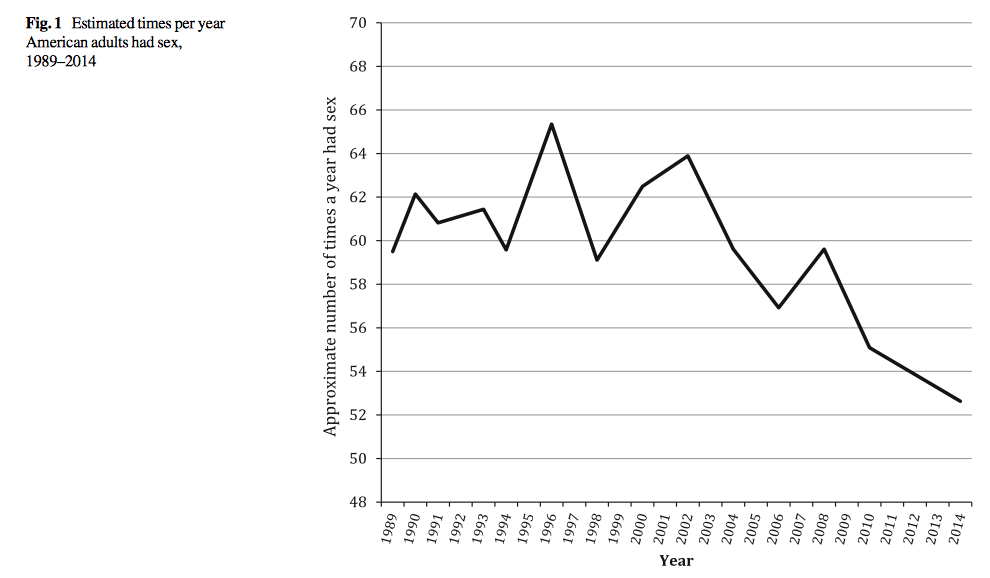They're "hooking" up.
They've got more access to safe-sex and birth-control information – at their fingertips via their smartphone – than any generation in human history.
They've got access to a tech-filled world of dating apps that can produce a prospective partner in as little time as it takes to hail an Uber.
So, naturally, Millennials are having more sex than anyone their age has had in recent years, right?
Wrong. Just the opposite.
That's according to a new study published this week, which found that Americans are having less sex now than in generations past – which includes Millennials having less than those at the same age of the previous generation, a conclusion from a previous related study.
The researchers wrote "with age and time period controlled, those born in the 1930s had sex the most often whereas those born in the 1990s (and Millennials and iGen) had sex the least often," in their paper titled "Declines in Sexual Activity among American Adults, 1989-2014" that was published today in the Archives of Sexual Behavior.
"Despite their reputation for hooking up," the current, catch-all term for casual sexual encounters, "Millennials and the generation after them (known as iGen or Generation Z) are actually having sex less often than their parents and grandparents did when they were young," said San Diego State University Psychology Professor Jean Twenge, the lead author of the study. "That's partially because fewer iGen'ers and Millennials have steady partners."
 In the new paper, based on survey data from the General Social Study collected from participating adults over 18, Americans "who were married or living together had sex 16 fewer times per year in 2010-2014 compared to 2000-2004." According to a university statement the GSS figures amounted to "a nationally representative sample of more than 26,000 American adults asked about their sexual behavior since 1989."
In the new paper, based on survey data from the General Social Study collected from participating adults over 18, Americans "who were married or living together had sex 16 fewer times per year in 2010-2014 compared to 2000-2004." According to a university statement the GSS figures amounted to "a nationally representative sample of more than 26,000 American adults asked about their sexual behavior since 1989."
While Millenials can be influenced by cultural developments that promote sexual behavior, there are mitigating factors at play as well, such as "the widespread availability of pornography, the historically high number of young adults living with their parents, the later age at first marriage, and increased access to instant entertainment online," according to SDSU.
As for the drop in sexual activity overall, among all ages of American adults, Prof. Twenge and her co-authors reached this conclusion for the falloff, as the chart presented in the new study shows.
"Much of this decline is due to the lower marriage rate in recent years, as married individuals have sex more consistently than unmarried individuals (a similar trend appears for living together)," they wrote at the end of the paper. "In addition, those with steady partners are having sex less frequently. The decline in sexual frequency thus appears to be rooted in twin trends: Americans with steady partners are both fewer in number and have sex less often."




